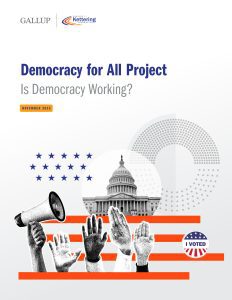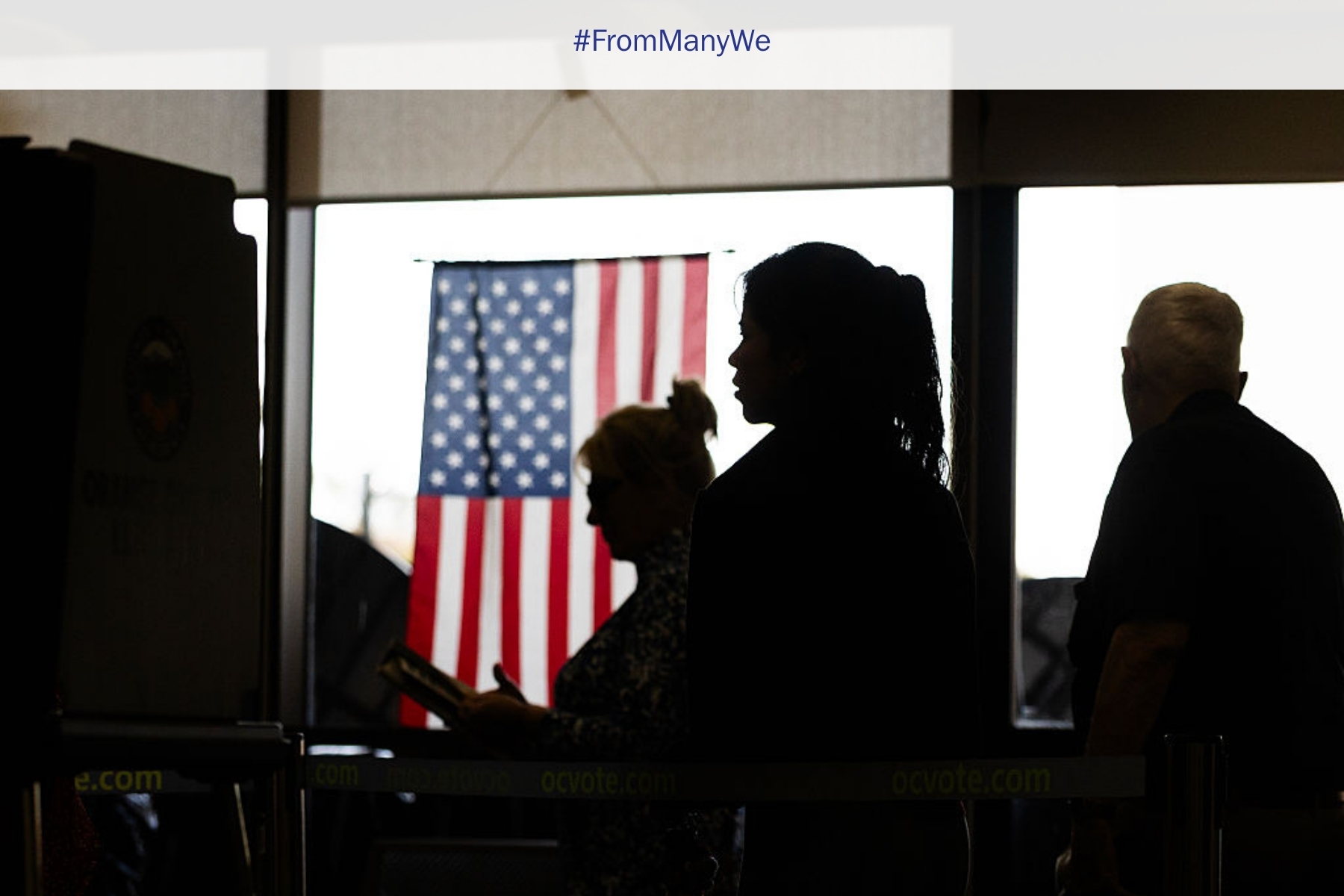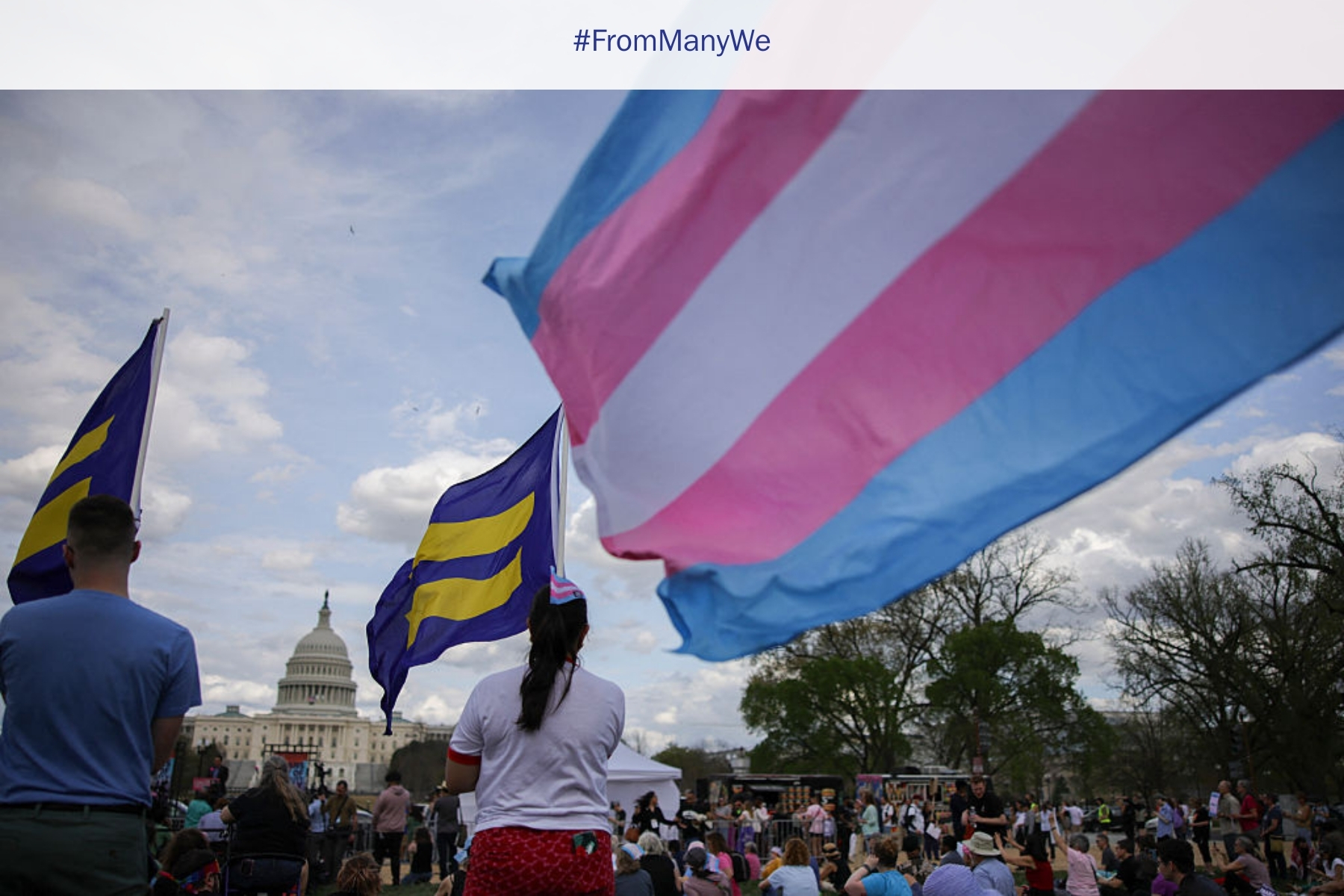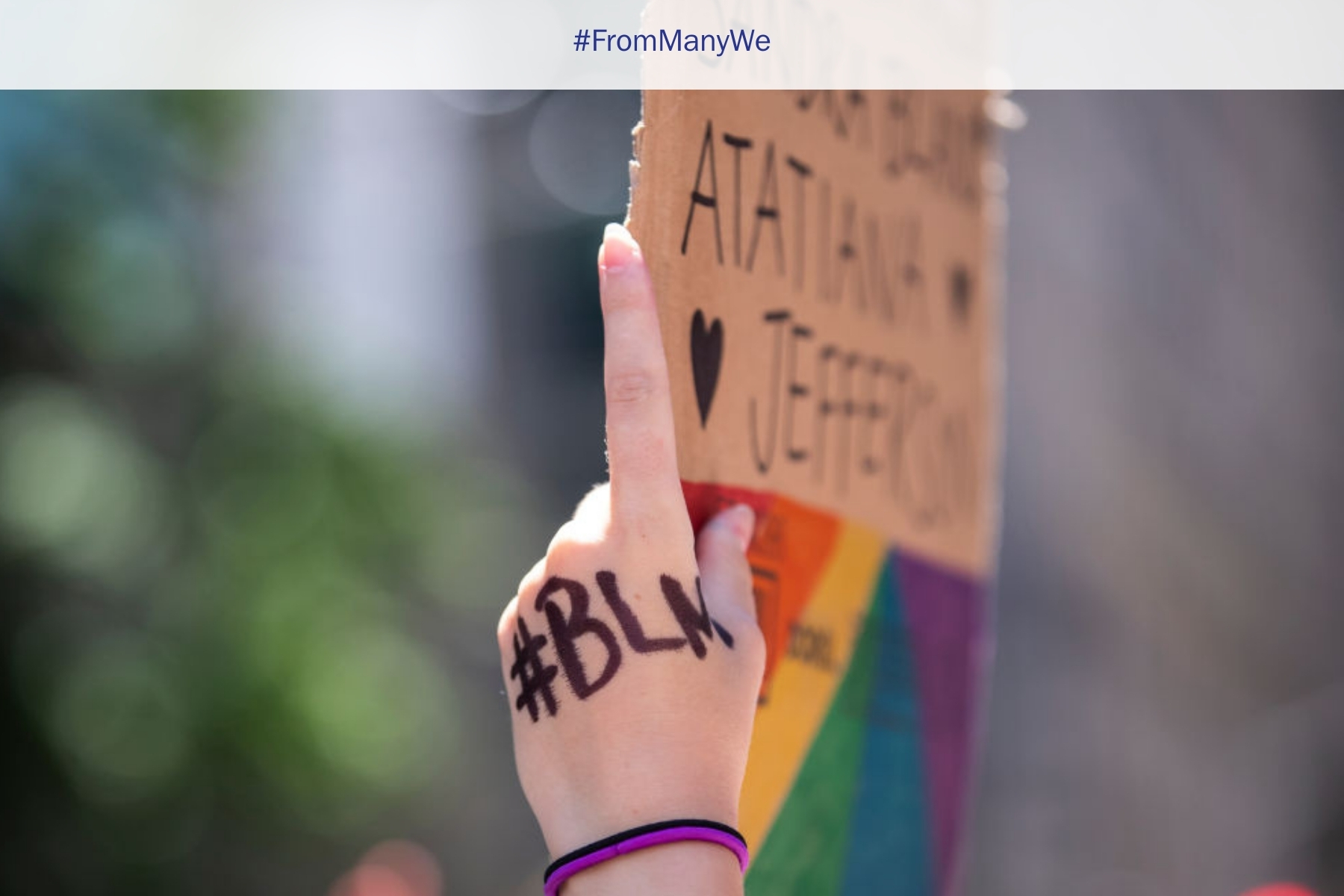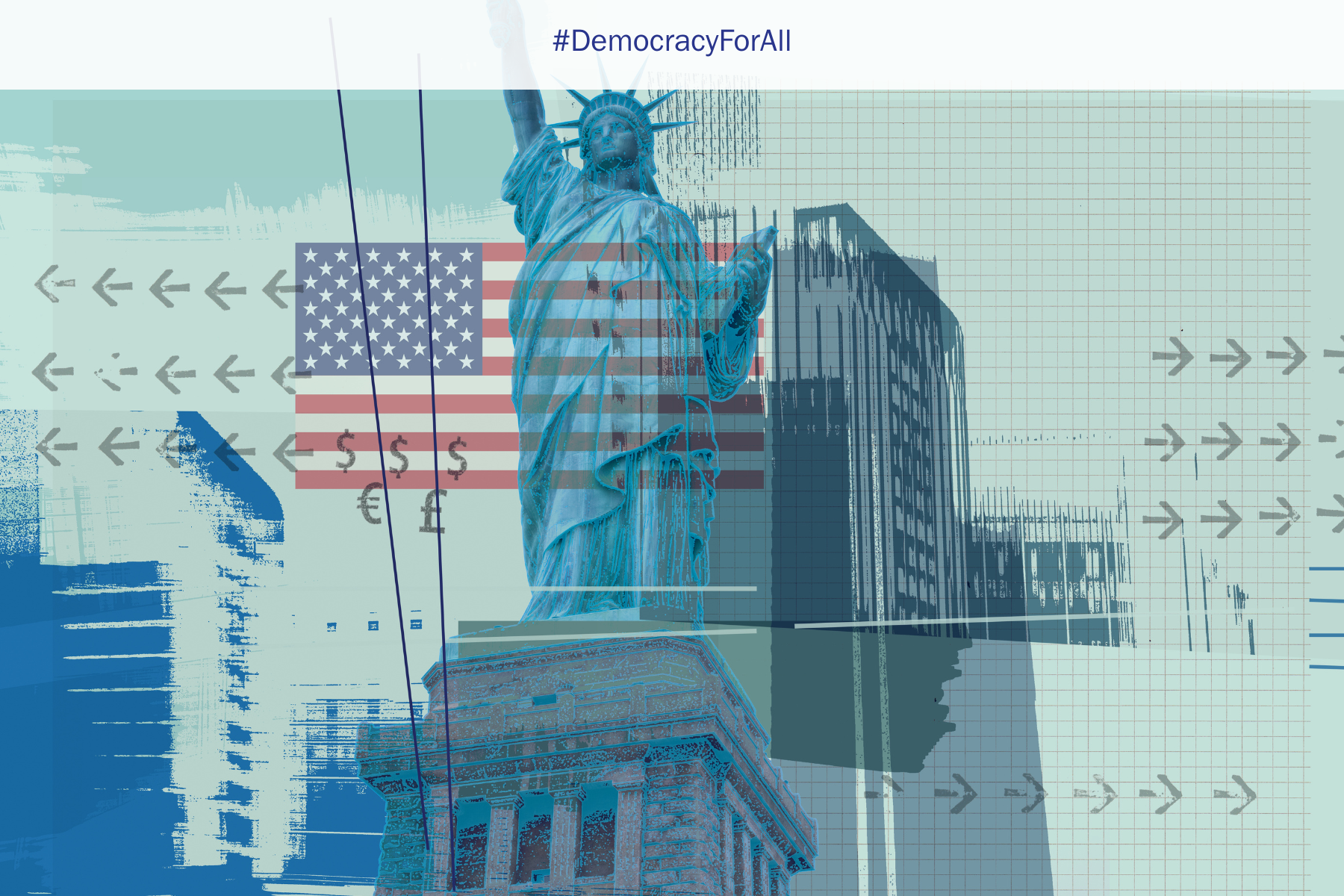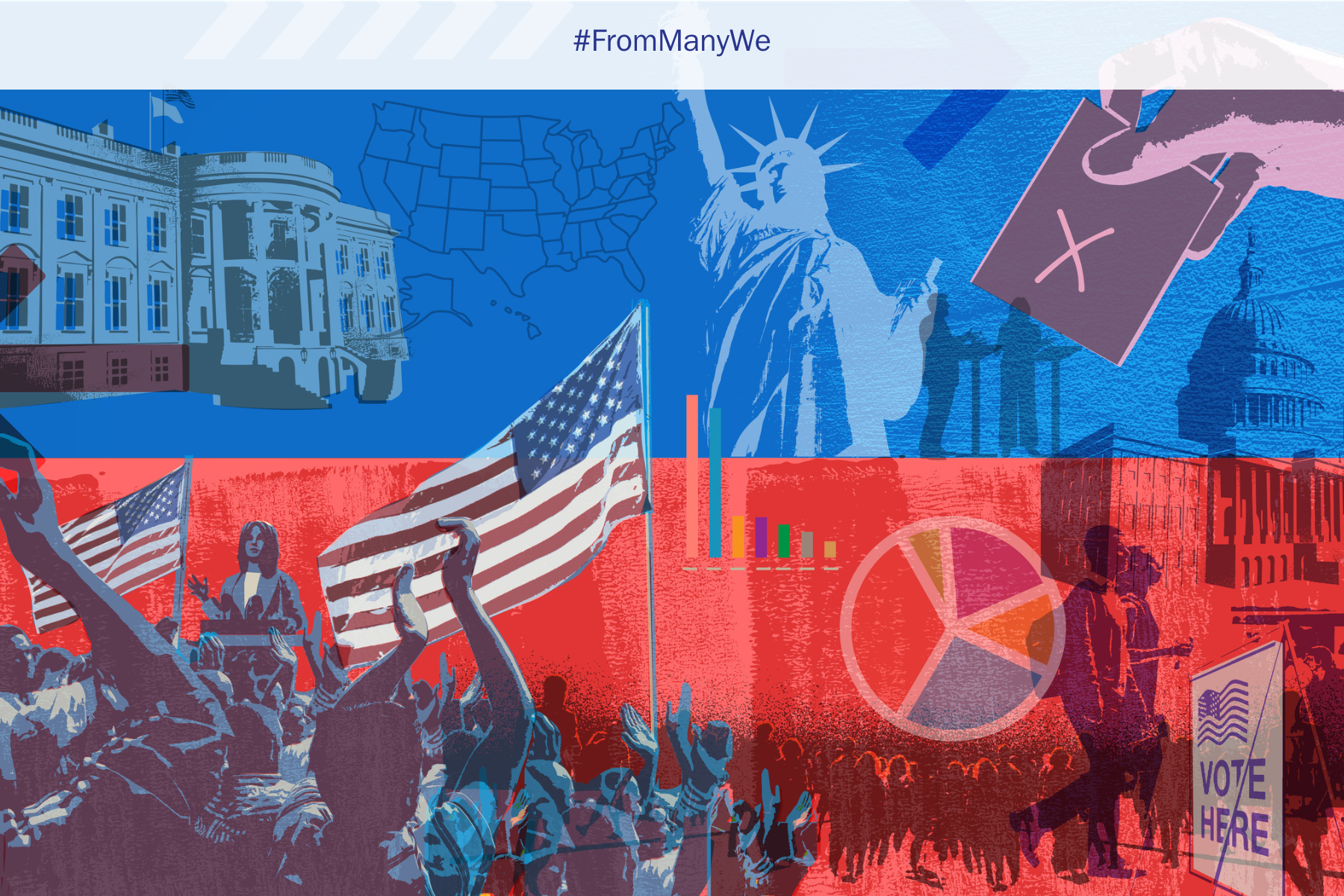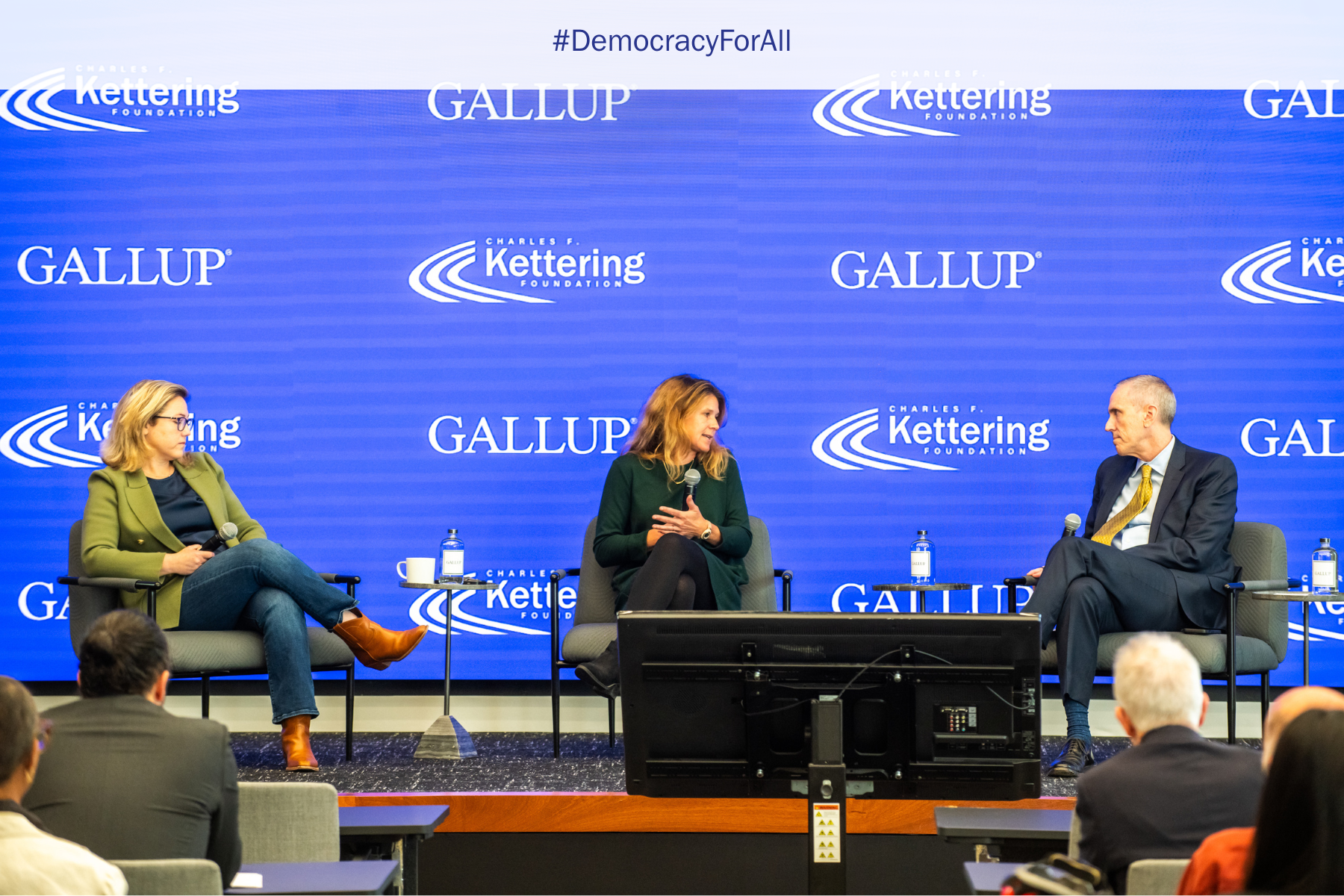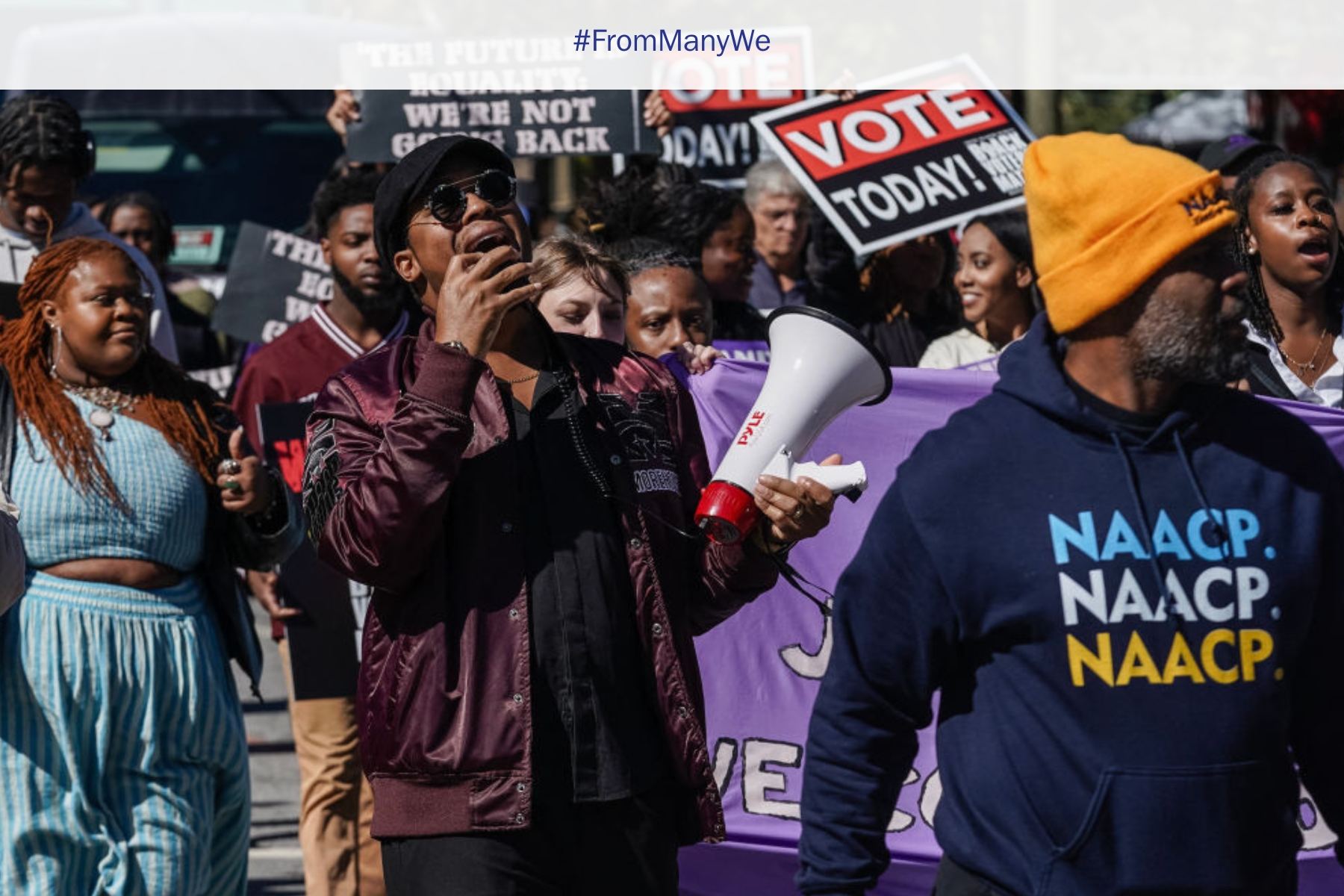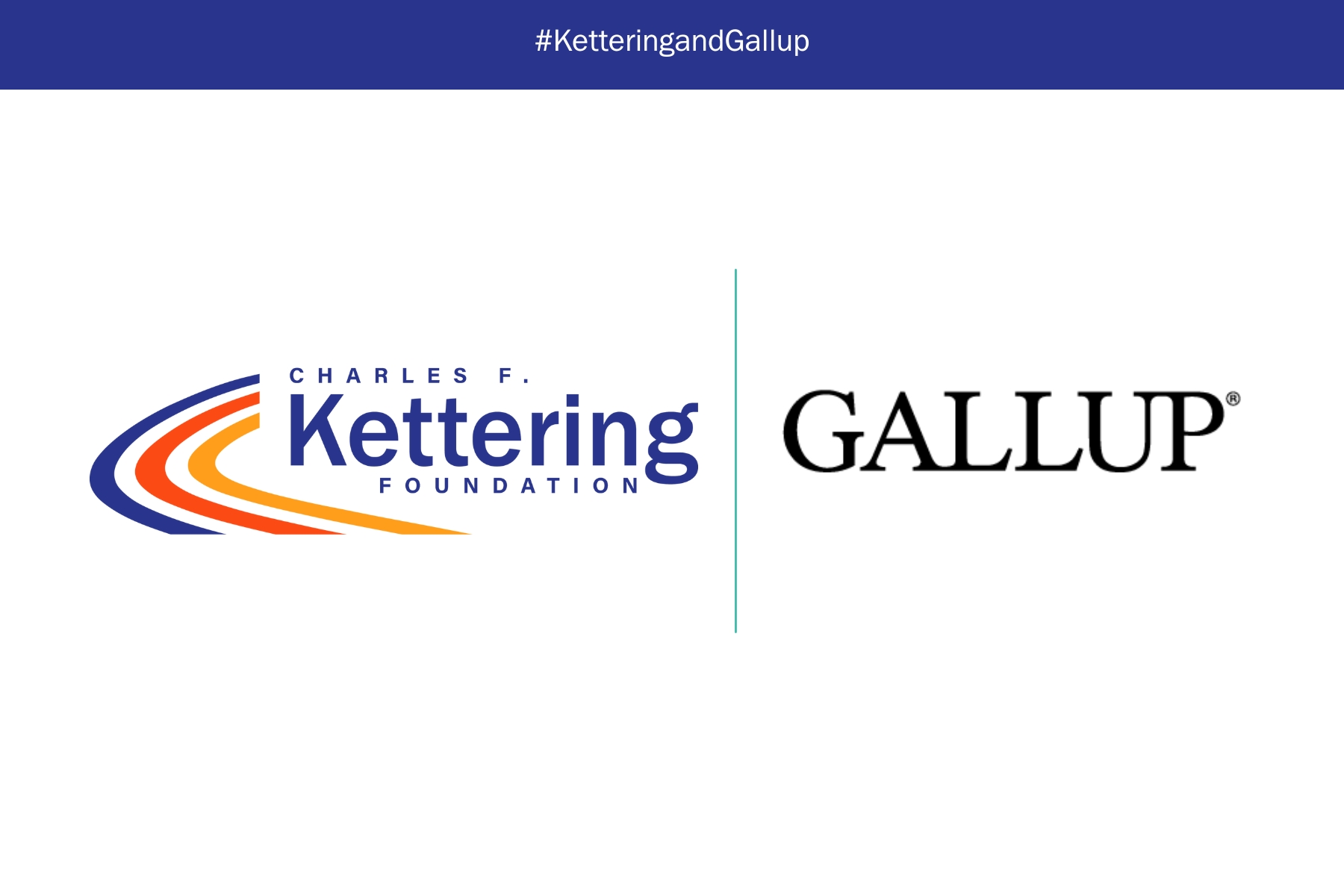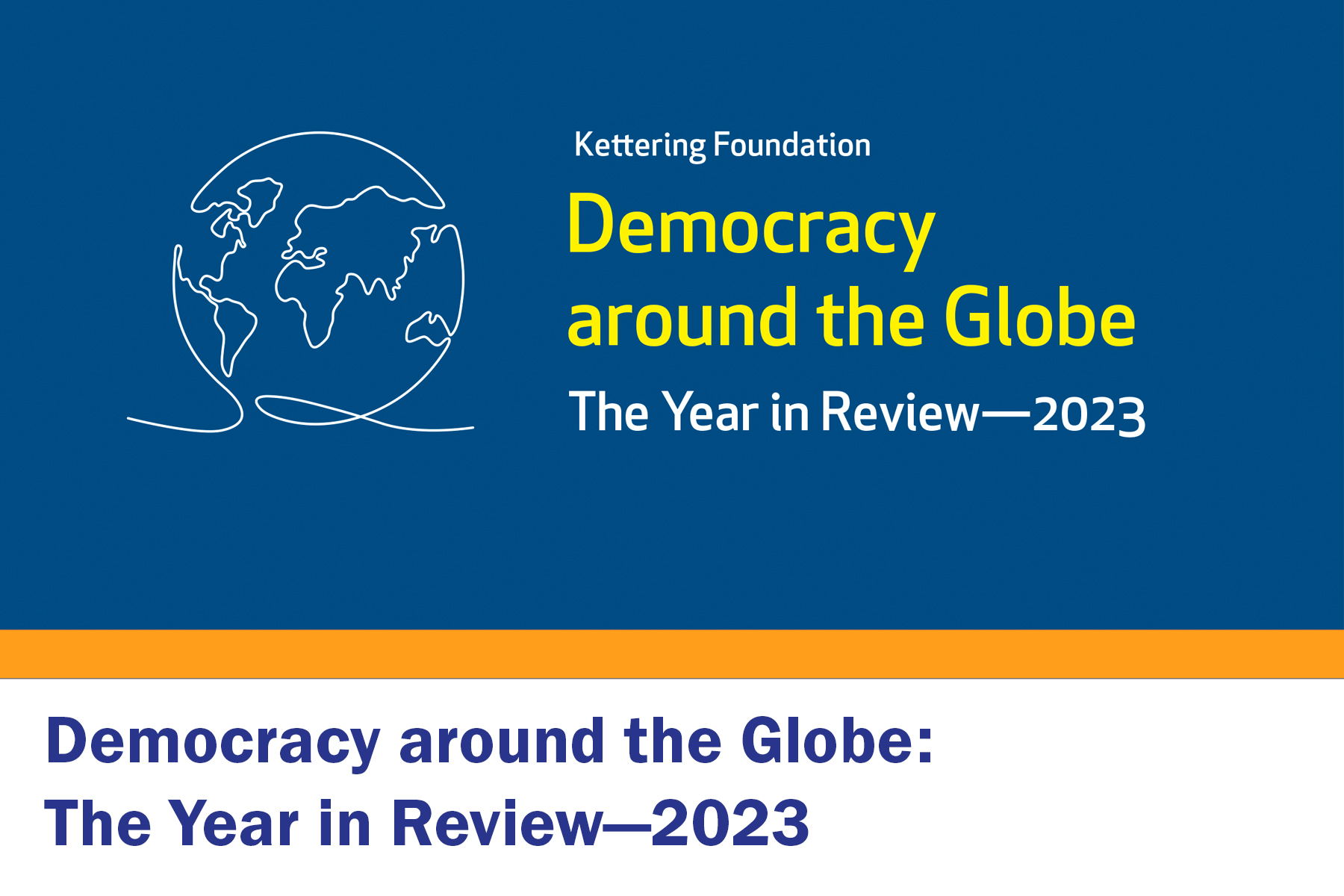Most Americans Believe in Democracy but Question Its Performance, Kettering-Gallup Study Finds
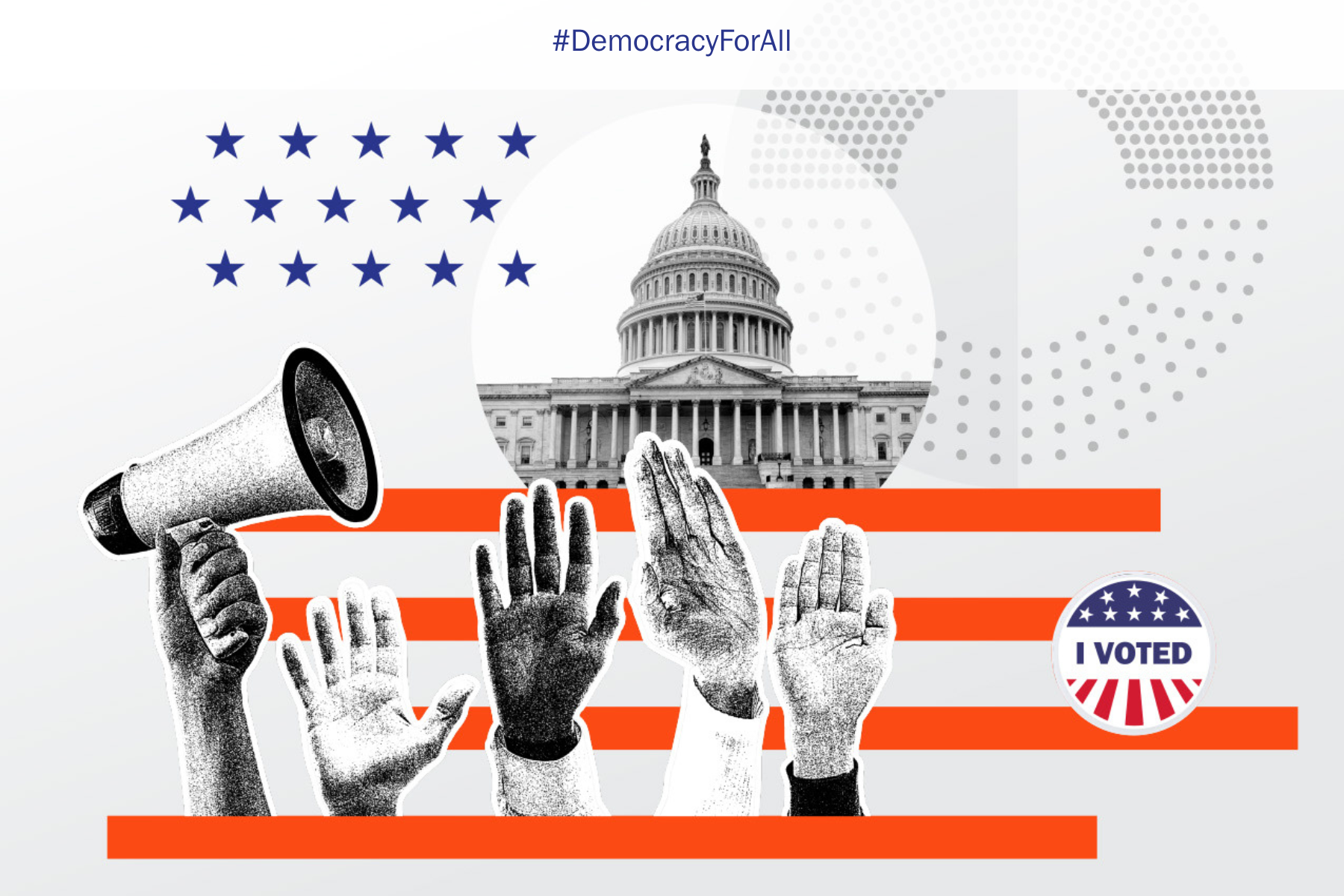
Economic hardship, social disconnection and age gaps shape faith in U.S. democracy
Nearly 250 years after the founding of U.S. democracy, most Americans still believe it is the best form of government. However, many question how well it’s working, according to the first report from the Democracy for All Project, a new multiyear research initiative by the Kettering Foundation in partnership with Gallup. The project is the most extensive annual study of how Americans experience and participate in the democratic system.
The survey of more than 20,000 U.S. adults reveals that two-thirds of Americans say democracy is the best form of government, but only about one in four (24%) believe it is performing well. A majority, 51%, say it is performing poorly.
“Americans still believe in democracy, they just don’t believe it’s working,” said Jim Clifton, Chairman of Gallup. “The system isn’t broken because people stopped caring; it’s broken because people stopped trusting. Rebuilding that trust starts with leaders who listen.”
Attitudes Toward Democracy Linked to Age and Economic Circumstances
Americans’ commitment to democratic principles is strong, but commitment to democracy appears to be waning by generation: 80% of adults aged 65 and older say democracy is the best form of government, compared with just 53% of those aged 18 to 29. Younger Americans are also less likely to say democracy is performing well, underscoring generational divides in both experience and expectation.
“It is good news for our nation that two-thirds of all Americans continue to name democracy as the best form of governance,” said Sharon L. Davies, Kettering’s president and CEO. “But we must do more to reverse the erosion of that belief among our youngest citizens. This survey is a wake-up call to our elected leaders.”
Economic circumstances play a major role in perceptions of democracy. Among adults who report living comfortably, nearly one in three (32%) believe democracy is functioning well. By contrast, only 12% of those who say it is “very difficult to get by” say the same. The report also finds that those who feel disconnected from their communities or uncertain about their place in society are less likely to express faith in democracy’s value or performance.
Shared Democratic Values Endure
Despite deep concerns about how democracy is functioning, the study finds that Americans continue to share strong commitments to its foundational principles. Large majorities reject political violence, value compromise and view diversity as a source of national strength. Eighty-four percent of Americans say that racial, religious and cultural diversity makes the U.S. stronger, while 80% believe leaders should compromise to get things done. Similarly, 83% reject violence as a means of achieving political goals. These areas of consensus underscore how Americans continue to embrace democracy’s ideals even when they question its performance.
Few Americans Trust Institutions and Political Leaders
Confidence in the institutions that support democracy is strikingly low, from Congress and the presidency to the division of power among federal, state and local governments. Only one-third of Americans say that any of the country’s core systems are functioning effectively. The administration of elections earns the highest marks, with 32% saying it is working well, while the legislative branch and the criminal justice system receive the lowest confidence ratings.
The findings point to a significant gap between Americans’ personal dedication to democracy and their trust in others to uphold it. Public skepticism is especially great when it comes to the nation’s political leadership. Only 27% of adults believe political leaders are committed to maintaining a strong democracy, while fewer than half (49%) think most other Americans share that commitment.
Barriers to Participation and Representation
While most Americans express confidence in local voting procedures, far fewer feel empowered to influence government beyond the ballot box. Nearly three in four adults (72%) say local voting laws make it easy to cast a ballot, yet only about half (54%) say they know how to contact elected officials, and just 48% believe people like them can effectively share their opinions with those in power. Adults who are younger, less educated or struggling financially are particularly less likely to see clear opportunities for engagement, suggesting reasons for why democratic participation varies.
Americans Question Whether Government Represents Their Will and Interests
Only about one in four (26%) say government decisions reflect what most people want, and just 21% believe the government is sensitive to the interests of people like them. Similarly, 26% say that people with backgrounds and experiences similar to their own are represented in government leadership. Confidence in the fairness of U.S. laws and policies is also low: Only 30% of Americans agree that the government’s laws and policies uphold the principle of “liberty and justice for all,” with agreement dropping sharply among those facing financial hardship.
About the Democracy for All Project
The Democracy for All Project is a multiyear collaboration between Gallup and the Kettering Foundation designed to understand how Americans experience democracy and elevate all voices across groups and generations. The 2025 report is based on surveys of 20,338 adults conducted between July and August 2025, with a margin of sampling error of ±0.9 percentage points.
